- Home
- Cornelia Funke
The Glass of Lead and Gold Page 5
The Glass of Lead and Gold Read online
Page 5
Tabetha ran down many streets before she dared to stop and lean her back against a wall. Her hands were covered with burns, as were her ragged clothes, and she was sure her face didn’t look any better.
She cooled the burns with some snow, before she walked into the Fuentes’ Soup Kitchen. The girl called Sue took a shocked step back when she saw her, and some of the guests looked as alarmed as if another Troll had walked in. Ofelia Fuentes stood behind the counter, her lips painted as purple as a violet and with almost as many Will-o’-the-Wisps in her hair as sat in the Queen’s tree.
Tabetha was limping, as she made her way past the tables. Her boots were too big and their soles were spiked with glass, so she had run all the way back barefoot. She put the boots on the counter when she reached it, and the three golden tears.
Ofelia touched them with her finger. She was wearing golden nail polish now, for Christmas night.
“So it worked.”
“Yes.”
“And Soames tried to steal the glass?”
“Yes.”
Borga came out of the kitchen. Tabetha was sure that one of the Hobs had alerted the cook to her presence.
“Who tried to cook him?” she asked, pointing at Tabetha’s burnt skin.
“Her,” Ofelia said. “She’s a girl. I told you.”
Borga went into the kitchen and came back with five eggs in her huge hand. She cracked them in a bowl and placed it in front of Tabetha.
“Egg, vite,” she said. “Good for burns.”
It was true. Tabetha’s skin hurt much less when she smeared the pale pulp on her hands and face. All the customers were watching her, but who cared? She had escaped a swarm of Fire Elves, thanks to the river.
“Looking at those burns, I guess Soames still has the glass?”
Tabetha wiped the egg onto her neck. “Yes. And no.”
Two women paid for their soup. One had red hair like Tabetha’s. Hers had been that long once too. She missed running her fingers through it.
“I crushed the glass,” she said. It hurt to think of it. It had been so beautiful.
Ofelia handed a bowl of soup to an old man, who wore the tattoos of the dock workers on the back of his hands. “Soames will make another one from the splinters.”
“Yes. But I don’t think he’ll be able to restore the pattern.” Tabetha took her boots and turned them over. The soles were covered with broken glass. She plucked a few splinters out of the leather and lay them on the counter. Each was barely as big as a fingernail. “Maybe we can take these to another glass-blower.”
Ofelia brought out an empty bowl for the splinters, and together they both silently picked the glass out of the worn sole. The remains of the Glass of Lead and Gold.
“And don’t forget those.” Tabetha picked up two of the golden tears. “They are for you. I need only one.”
Ofelia shook her head. “No. Keep them. I don’t want them.”
“I still have to pay you back for Soames’s services.”
Ofelia bent her head over the boot sole and plucked out another splinter. “No! My mother won’t come home—she’s tired of the rain and the cold. I went to tell my father, this morning, but you thought I went to Soames, to steal from you. I don’t need your gold.”
Tabetha’s heart felt so cold. It’s hard to lose a friend. Especially when you have only one. She turned around. The customers had forgotten about her. No one remembered her. Nobody missed her. Only the river. There was no other place to go to, despite the gold in her pocket. It wouldn’t take away the loneliness.
“She could pay for a room, wis one tear.” Borga took the bowl with the glass splinters, and ploughed through them with her fingers. “Yu need help, now yur mozzer is gone.”
“She doesn’t sleep in rooms,” Ofelia said. “She likes the river and the mud more than people, and you heard how she thinks I lost my hand. She’s so used to pretending she’s someone else that she thinks everyone else does the same…”
Borga pressed her huge fingers against the girl’s violet lips.
“No more words,” she said. “She came back. Let’s cook some soup.”
Then she took the bowl of broken glass and waved Ofelia to follow her into the kitchen.
Tabetha took the three golden tears from the counter and put them in her pocket. Then she slipped back into the boots and walked to the door. They still had some glass in them and the raw egg was like a second skin on her burnt face. She doesn’t sleep in rooms…
She put her hand on the door handle, and looked around at all the people talking and eating and laughing. Or just looking sad. There was a river at the Fuentes’ inn, too, she realized. A human river of faces and voices, of joy and sadness, brought forth by this city. At times it could feel cold and threatening, and one could drown in it, as her mother had. But in this very moment, on this Christmas evening, it felt warm and wide and welcoming.
When Tabetha stepped into the kitchen, Borga was pouring a few glass splinters into one of the small muslin wraps that she used to hang spices into her soups. The Hobs were watching her with worried faces.
“Don’t look like zat,” the Troll woman said. “I’ve done it wiz stones and bones and poisonous berries. Why not wiz glass?”
There is a rumour in Londra, about a Christmas soup that is served at the Fuentes’ Soup Kitchen, near the river. People whisper that those who eat it cry golden tears afterwards. They also say that the soup is not served to everyone and that two young women—one with long, red hair and one with only one hand—decide who gets a bowl.
There are many stories told in Londra. And not all of them are true.
But I believe this one is.
About the Author
Cornelia Funke is the highly acclaimed, award-winning and bestselling author of the Inkheart trilogy, Dragon Rider, The Thief Lord and the Reckless series, which is published by Pushkin Press. Born in 1958 in the German town of Dorsten, she worked as a social worker for a few years before turning first to illustration and then to writing. Her books have now sold more than 20 million copies worldwide and have been translated into 37 languages. Cornelia lives in Los Angeles.
We created Pushkin Children’s Books to share tales from different languages and cultures with younger readers, and to open the door to the wide, colourful worlds these stories offer.
From picture books and adventure stories to fairy tales and classics, and from fifty-year-old bestsellers to current huge successes abroad, the books on the Pushkin Children’s list reflect the very best stories from around the world, for our most discerning readers of all: children.
Copyright
Pushkin Press
71–75 Shelton Street
London WC2H 9JQ
Copyright © 2018 Cornelia Funke
Illustrations copyright © 2018 Cornelia Funke
First published by Pushkin Press in 2018
1 3 5 7 9 8 6 4 2
ISBN 13: 978–1–78269–199–0
All rights reserved. No part of this publication may be reproduced, stored in a retrieval system or transmitted in any form or by any means, electronic, mechanical, photocopying, recording or otherwise, without prior permission in writing from Pushkin Press
www.pushkinpress.com

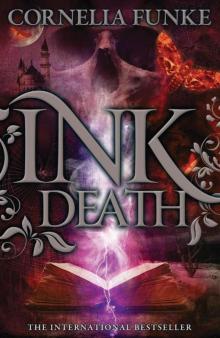 Inkdeath
Inkdeath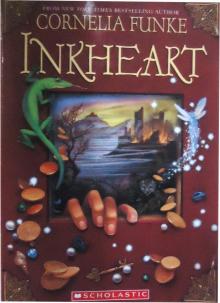 Inkheart
Inkheart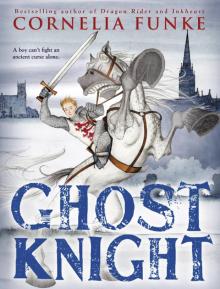 Ghost Knight
Ghost Knight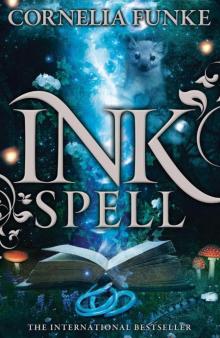 Inkspell
Inkspell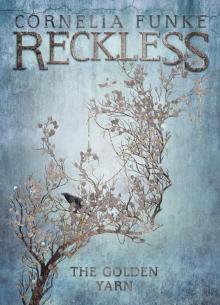 The Golden Yarn
The Golden Yarn Fearless
Fearless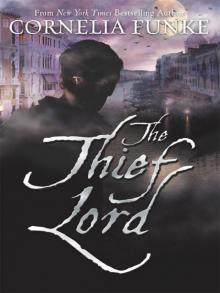 The Thief Lord
The Thief Lord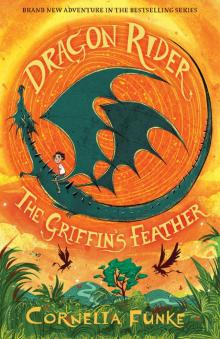 The Griffin's Feather
The Griffin's Feather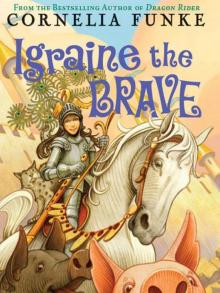 Igraine the Brave
Igraine the Brave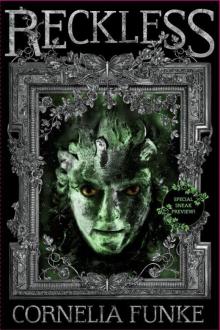 Reckless
Reckless When Santa Fell to Earth
When Santa Fell to Earth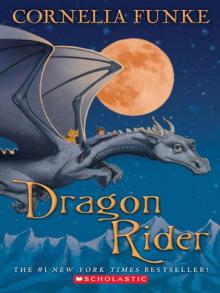 Dragon Rider
Dragon Rider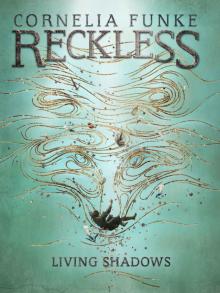 Living Shadows
Living Shadows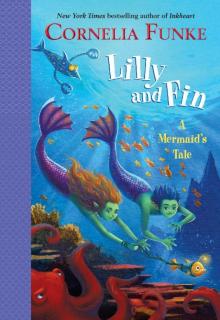 Lilly and Fin: A Mermaid's Tale
Lilly and Fin: A Mermaid's Tale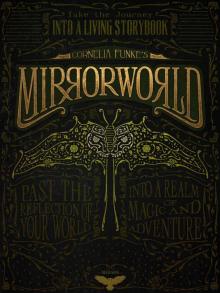 The MirrorWorld Anthology
The MirrorWorld Anthology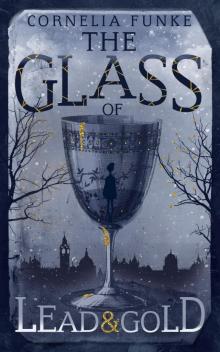 The Glass of Lead and Gold
The Glass of Lead and Gold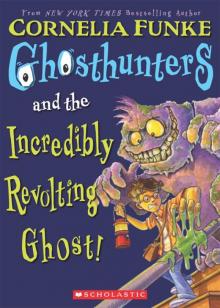 Ghosthunters and the Incredibly Revolting Ghost
Ghosthunters and the Incredibly Revolting Ghost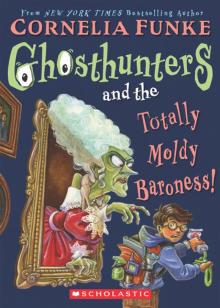 Ghosthunters and the Totally Moldy Baroness!
Ghosthunters and the Totally Moldy Baroness!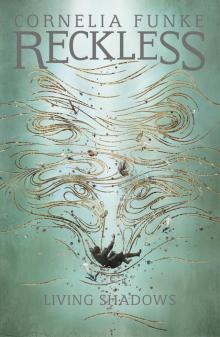 Reckless II
Reckless II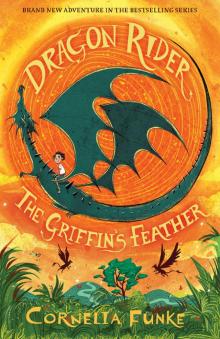 Griffin's Feather
Griffin's Feather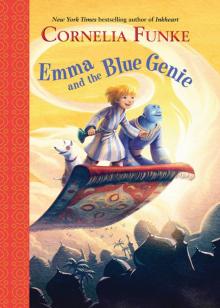 Emma and the Blue Genie
Emma and the Blue Genie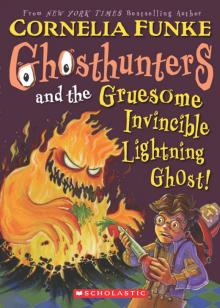 Ghosthunters and the Gruesome Invincible Lightning Ghost
Ghosthunters and the Gruesome Invincible Lightning Ghost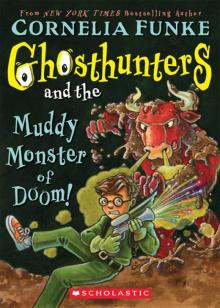 Ghosthunters and the Muddy Monster of Doom!
Ghosthunters and the Muddy Monster of Doom!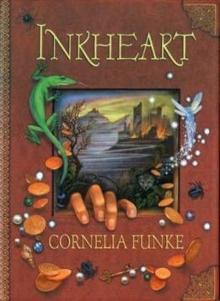 Inkheart ti-1
Inkheart ti-1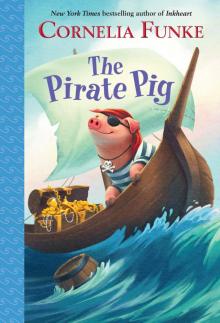 The Pirate Pig
The Pirate Pig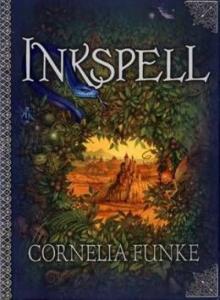 Inkspell ti-2
Inkspell ti-2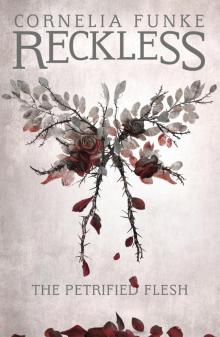 The Petrified Flesh
The Petrified Flesh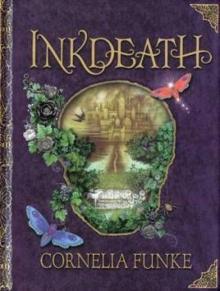 Inkdeath ti-3
Inkdeath ti-3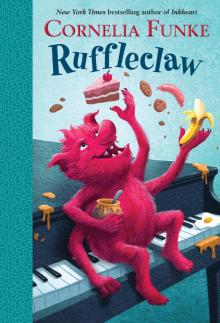 Ruffleclaw
Ruffleclaw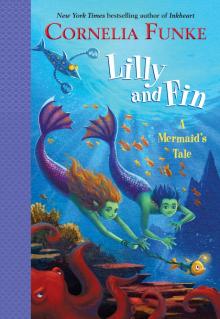 Lilly and Fin
Lilly and Fin